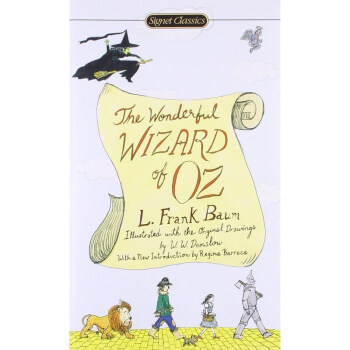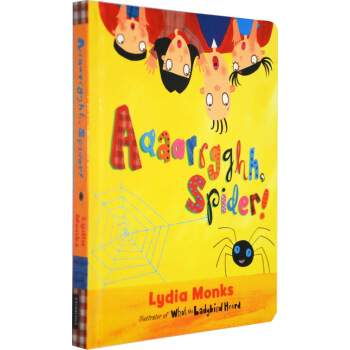![Sense and Sensibility[理智与情感] [平装]](https://pic.windowsfront.com/19043406/7bffb764-dc1f-429b-8055-1c718432811d.jpg)

具体描述
编辑推荐
美国文学评论巨匠爱德蒙·威尔逊说:“在英国文学近一又四分之一世纪的历史上,曾发生过几次趣味的革命,惟独莎士比亚和简·奥斯丁经久不衰。”《理智与情感》是奥斯丁处女作,与《傲慢与偏见》堪称姐妹篇。内容简介
When Mr. Dashwood dies, he must leave the bulk of his estate to the son by his first marriage, which leaves his second wife and three daughters (Elinor, Marianne, and Margaret) in straitened circumstances. They are taken in by a kindly cousin, but their lack of fortune affects the marriageability of both practical Elinor and romantic Marianne. When Elinor forms an attachment for the wealthy Edward Ferrars, his family disapproves and separates them. And though Mrs. Jennings tries to match the worthy (and rich) Colonel Brandon to her, Marianne finds the dashing and fiery Willoughby more to her taste. Both relationships are sorely tried. But this is a romance, and through the hardships and heartbreak, true love and a happy ending will find their way for both the sister who is all sense and the one who is all sensibility.
The Dashwood sisters are very different from each other in appearance and temperament; Elinor's good sense and readiness to observe social forms contrast with Marianne's impulsive candor and warm but excessive sensibility. Both struggle to maintain their integrity and find happiness in the face of a competitive marriage market.
《理智与情感》讲述了:埃莉诺和玛丽安两姐妹生在一个体面的英国乡绅家庭,姐姐善于用理智来控制情感,妹妹却往往在情感上毫无节制,因此在恋爱中碰到挫折时,她们作出了不同的反应:姐姐忍辱负重,始终与人为善;妹妹心高气傲,几近崩溃……与主人公命运情牵相关的闲得发慌的乡绅太太,势利无情的兄嫂一家,市侩虚伪的远房姐妹,以及少女心中那三位或道德败坏或正直优柔的恋人悉数登场。全书以喜剧开头,悲剧发展,终以喜剧收场,是一则以细腻笔触和生动对白见长、讲述没有富裕嫁妆的少女婚恋的经典故事。
作者简介
Jane Austen was born on December 16, 1775 at Steventon near Basingstoke, the seventh child of the rector of the parish. She lived with her family at Steventon until they moved to Bath when her father retired in 1801. After his death in 1805, she moved around with her mother; in 1809, they settled in Chawton, near Alton, Hampshire. Here she remained, except for a few visits to London, until in May 1817 she moved to Winchester to be near her doctor. There she died on July 18, 1817.As a girl Jane Austen wrote stories, including burlesques of popular romances. Her works were only published after much revision, four novels being published in her lifetime. These are Sense and Sensibility (1811), Pride and Prejudice (1813), Mansfield Park (1814) and Emma (1816). Two other novels, Northanger Abbey and Persuasion, were published posthumously in 1818 with a biographical notice by her brother, Henry Austen, the first formal announcement of her authorship. Persuasion was written in a race against failing health in 1815-16. She also left two earlier compositions, a short epistolary novel, Lady Susan, and an unfinished novel, The Watsons. At the time of her death, she was working on a new novel, Sanditon, a fragmentary draft of which survives.
简·奥斯汀,是英国著名女性小说家,她的作品主要关注乡绅家庭女性的婚姻和生活,以女性特有的细致入微的观察力和活泼风趣的文字真实地描绘了她周围世界的小天地。
精彩书评
As nearly flawless as any fiction could be.--Eudora Welty
"In its marvelously perceptive portrayal of two young women in love, "Sense and Sensibility" is Austen's insightful representation of early 19th-century middle-class provincial life. This edition features a new Afterword."
-- Revised reissue.
目录
INTRODUCTIONCHRONOLOGY OF JANE AUSTEN'S LIFE AND WORK
HISTORICAL CONTEXT OF Sense and Sensibility
SENSE AND SENSIBILITY
NOTES
INTERPRETIVE NOTES
CRITICAL EXCERPTS
QUESTIONS FOR DISCUSSION
SUGGESTIONS FOR THE INTERESTED READER
精彩书摘
Sense and Sensibility, the first of those metaphorical bits of "ivory" on which Jane Austen said she worked with "so fine a brush," jackhammers away at the idea that to conjecture is a vain and hopeless reflex of the mind. But I'll venture this much: If she'd done nothing else, we'd still be in awe of her. Wuthering Heights alone put Emily Brontë in the pantheon, and her sister Charlotte and their older contemporary Mary Shelley might as well have saved themselves the trouble of writing anything but Jane Eyre and Frankenstein. Sense and Sensibility, published in 1811, is at least as mighty a work as any of these, and smarter than all three put together. And it would surely impress us even more without Pride and Prejudice (1813), Mansfield Park (1814), and Emma (1815) towering just up ahead. Austen wrote its ur-version, Elinor and Marianne, when she was nineteen, a year before First Impressions, which became Pride and Prejudice; she reconceived it as Sense and Sensibility when she was twenty-two, and she was thirty-six when it finally appeared. Like most first novels, it lays out what will be its author's lasting preoccupations: the "three or four families in a country village" (which Austen told her niece, in an often-quoted letter, was "the very thing to work on"). The interlocking anxieties over marriages, estates, and ecclesiastical "livings." The secrets, deceptions, and self-deceptions that take several hundred pages to straighten out-to the extent that they get straightened out. The radical skepticism about human knowledge, human communication, and human possibility that informs almost every scene right up to the sort-of-happy ending. And the distinctive characters-the negligent or overindulgent parents, the bifurcating siblings (smart sister, beautiful sister; serious brother, coxcomb brother), the charming, corrupted young libertines. Unlike most first novels, though, Sense and Sensibility doesn't need our indulgence. It's good to go.In the novels to come, Elinor Dashwood will morph into Anne Elliott and Elizabeth Bennet (who will morph into Emma Woodhouse); Edward Ferrars into Edmund Bertram, Mr. Knightley, Henry Tilney, and Captain Wentworth; Willoughby into George Wickham and Henry Crawford. But the characters in Sense and Sensibility stand convincingly on their own, every bit as memorable as their later avatars. If Austen doesn't have quite the Caliban-to-Ariel range of a Shakespeare, she can still conjure up and sympathize with both Mrs. Jennings-the "rather vulgar" busybody with a borderline-unwholesome interest in young people's love lives, fits of refreshing horse sense, and a ruggedly good heart-and Marianne Dashwood, a wittily observed case study in Romanticism, a compassionately observed case study in sublimated adolescent sexuality, and a humorously observed case study in humorlessness. "I should hardly call her a lively girl," Elinor observes to Edward, "-she is very earnest, very eager in all she does-sometimes talks a great deal and always with animation-but she is not often really merry." Humorlessness, in fact, may be the one thing Marianne and her eventual lifemate, Colonel Brandon, have in common. (Sorry to give that plot point away; it won't be the last one, either. So, fair warning.) The minor characters have the sort of eidetic specificity you associate with Dickens: from the gruesomely mismatched Mr. and Mrs. Palmer to Robert Ferrars, splendidly impenetrable in his microcephalic self-complacency. The major characters, on the other hand, refuse to stay narrowly "in character"; they're always recognizably themselves, yet they seem as many-sided and changeable as people out in the nonfictional world.
Elinor makes as ambivalent a heroine as Mansfield Park's notoriously hard-to-warm-up-to Fanny Price. She's affectionately protective of her sister Marianne yet overfond of zinging her: "It is not every one who has your passion for dead leaves." She's bemused at Marianne's self-dramatizing, yet she's as smug about suffering in silence as Marianne (who "would have thought herself very inexcusable" if she were able to sleep after Willoughby leaves Devonshire) is proud of suffering in Surround Sound. She can be treacherously clever, as when Lucy Steele speculates (correctly) that she may have offended Elinor by staking her claim to Edward: " 'Offended me! How could you suppose so? Believe me,' and Elinor spoke it with the truest sincerity, 'nothing could be farther from my intention, than to give you such an idea.' " Yet she can also be ponderously preachy: "One observation may, I think, be fairly drawn from the whole of the story-that all Willoughby's difficulties, have arisen from the first offense against virtue, in his behaviour to Eliza Williams. That crime has been the origin of every lesser one, and of all his present discontents." (In the rest of Austen, only the intentionally preposterous Mary in Pride and Prejudice strikes just this note: "Unhappy as the event may be for Lydia, we may draw from it this useful lesson; that loss of virtue in a female is irretrievable . . ."). Is Elinor simply an intelligent young woman overtaxed by having to be the grown-up of the family? Or is she an unconsciously rivalrous sibling, sick of hearing that her younger, more beautiful sister will marry more advantageously? Or both? Or what? It's not that Austen doesn't have a clear conception of her-it's that she doesn't have a simple conception. Elinor is the character you know the most about, since Austen tells most of the story from her point of view, and consequently she's the one you're least able to nail with a couple of adjectives or a single defining moment.
Edward bothers us, too. He's a dreamboat only for a woman of Elinor's limited expectations: independent-minded yet passive and depressive, forthright and honorable yet engaged in a book-long cover-up. (It's a tour de force on Austen's part to present a character so burdened with a secret that we see his natural behavior only long after we've gotten used to him.) At his strongest and most appealing-to Elinor, at least-he's a clear-your-mind-of-cant kind of guy: "I am not fond of nettles, or thistles, or heath blossoms. . . . A troop of tidy, happy villagers please me better than the finest banditti in the world." But he can also be a Hamlet-like whiner, complaining about his own idleness and vowing that his sons will be brought up "to be as unlike myself as possible. In feeling, in action, in condition, in every thing." For my money, Edward is the least likable of Austen's heroes, while his opposite number, Willoughby, is the most sympathetic of her libertines: smarter than Pride and Prejudice's Wickham (a loser who gets stuck with the "noisy" and virtually portionless Lydia Bennet) and more warmhearted than Mansfield Park's textbook narcissist Henry Crawford. Willoughby may strike trendy Wordsworthian poses with his effusions on cottages ("I consider it as the only form of building in which happiness is attainable"), but at least he has enough sense to abhor his own callowness, and enough sexy boldness to discompose even the rational Elinor. "She felt that his influence over her mind was heightened by circumstances which ought not in reason to have weight; by that person of uncommon attraction, that open, affectionate, and lively manner which it was no merit to possess . . ." His opening line when he at last explains to her what he's been up to ("Tell me honestly, do you think me most a knave or a fool?") is one of those Byronic flourishes that make him the person in Sense and Sensibility you'd most want to dine with and least want to trust.
前言/序言
用户评价
这本书给我最深刻的印象,莫过于它所展现出的那种不动声色的力量。简·奥斯汀没有华丽的辞藻,也没有惊心动魄的情节,但她却能用最平淡的笔触,勾勒出人心的复杂,描绘出社会百态。我喜欢书中的那种淡淡的忧伤,又夹杂着希望的感觉,仿佛是在诉说着生活本身的样子——有失落,也有收获,有困惑,也有成长。人物之间的对话,总是充满了机锋,看似随意,实则暗藏深意,需要读者细细品味。我特别喜欢作者对人物内心世界的探索,她让我们看到了,即使是最理智的人,内心也会有无法控制的情感波动;即使是最热情的人,也会在现实面前有所顾虑。平装本的包装,简约而不失格调,正如这本书本身一样,注重的是内容的深度,而非表面的装饰。它让我更加理解了,在做出人生重大决定时,如何才能真正地权衡利弊,如何在情感的洪流中保持清醒的头脑。这本书就像一位睿智的长者,用她的故事,教会我们如何更成熟地面对生活。
评分坦白说,刚开始接触《理智与情感》时,我有些担心它的年代感会让我觉得难以代入。然而,这种顾虑在阅读过程中烟消云散。这本书的魅力,恰恰在于它所探讨的主题——如何在情感的冲动与理智的判断之间找到平衡——是永恒的,无论是在哪个时代,我们都会面临这样的选择。简·奥斯汀的叙事节奏恰到好处,她不会急于推进情节,而是耐心地铺陈,让读者慢慢地感受到人物内心的波澜。我特别喜欢她对人物性格的细腻刻画,每一个角色都有其独特的闪光点和不足之处,没有完美的圣人,也没有十恶不赦的恶棍,这使得她们的成长和改变显得尤为真实可信。书中的一些对话,言辞间充满了智慧和幽默,读起来让人忍俊不禁,又发人深省。平装本的设计,朴实无华,正如书中传递的价值观一样,注重内涵而非外在的浮华。我常常在阅读这本书时,会停下来思考,自己的某些决定是否过于冲动,或者是否过于压抑自己的真实情感。它就像一面镜子,映照出我内心深处的矛盾和挣扎。
评分我一直在寻找一本能让我沉浸其中,远离现实喧嚣的读物,而《理智与情感》恰好满足了我的这个愿望。简·奥斯汀笔下的世界总是如此细腻且富有洞察力,她对人性的描绘更是入木三分。这本书的魅力在于,它不仅仅讲述了一个关于爱情和婚姻的故事,更深入地探讨了两种截然不同的人生哲学——理智与情感——如何在我们做出选择时产生冲突,又如何最终引导我们走向何方。我特别喜欢故事中的女性角色,她们都展现出了各自的坚韧与智慧,即使在那个对女性充满限制的时代,她们也努力地在困境中寻找自己的生存之道。达什伍德姐妹的性格差异,一个冷静理智,一个热情奔放,她们各自的经历和抉择,让我不断思考,如果是我,会如何应对?每一次重读,我都能从中发现新的细节,新的感悟,仿佛和书中的人物一起经历了人生的起伏。平装本的设计也很实用,方便携带,无论是在通勤的路上,还是在午后的阳光下,都能随时翻开,享受这段美妙的阅读时光。这本书就像一位老友,总能在我需要的时候给予我安慰和启迪。
评分当我拿起这本书时,我以为我将要面对的是一个陈旧的故事,但它却以一种意想不到的方式触动了我。简·奥斯汀的写作技巧,是一种润物细无声的功力,她不直接告诉你真相,而是通过人物的言行举止,通过他们之间的互动,让你自己去体会,去领悟。书中的情感纠葛,并非是那种戏剧性的三角恋,而是更多地体现在了对未来生活规划的考量,对家庭责任的承担,以及在社会压力下如何做出对自己最有利的选择。我尤其欣赏作者对女性在那个时代处境的描绘,她们的命运很大程度上取决于婚姻,这无疑给她们带来了巨大的压力,但也正是在这种压力下,她们展现出了非凡的勇气和智慧。平装版的质感很好,拿在手里有一种踏实的感觉,就像书中描绘的那些坚守原则的人物一样,朴实而有力量。这本书让我反思了“理智”和“情感”在生活中的真正含义,它们并非是对立的,而应该是相互补充,共同指引我们走向更美好的未来。
评分这本书给我的整体感觉就像一杯陈年的普洱茶,初品时或许觉得有些许苦涩,但随着时间的推移,回甘的醇厚便在口中蔓延开来。简·奥斯汀的文笔,与其说是华丽,不如说是精准,她用最简洁的语言描绘出最复杂的人心。她笔下的人物,没有绝对的善恶,只有在特定环境下的挣扎与选择。我尤其欣赏作者对社会阶层和人际关系的刻画,那些看似波澜不惊的社交场合,实则暗流涌动,充满了微妙的试探和算计。书中的爱情线索,更是充满了现实的考量,它不像现代小说中那样轰轰烈烈,而是更多地融入了经济基础、家庭背景以及社会舆论的考量。这种写实,让我觉得那些人物更加鲜活,他们的困境也更加令人感同身受。我常常会因为某些角色的遭遇而感到惋惜,又会因为她们最终的释然而感到欣慰。平装版的设计,让我可以随时随地捧着这本书,仿佛置身于那个19世纪的英国乡村,感受那里的宁静与风情。每一次翻阅,都像是一次穿越时空的对话,与简·奥斯汀本人,与她笔下的人物进行心灵的交流。
评分limited
评分fragmentary
评分觉得很赞 不过美中不足 大概是书的纸质问题
评分狄更斯的作品大多取材于与自己的亲身经历或所见所闻相关联的事件。他在书中揭露了济贫院骇人听闻的生活制度,揭开了英国社会底层的可怕秘密,淋漓尽致地描写了社会的黑暗和罪恶。本书起笔便描写了主人公奥利弗生下来便成为孤儿,以及在济贫院度过的悲惨生活。后来,他被迫到殡仪馆做学徒,又因不堪忍受虐待而离家出走。孤身一人来到伦敦后,又落入了窃贼的手中。狄更斯在其作品中大量描写了黑暗的社会现实,对平民阶层寄予了深切的向情,并无情地批判了当时的社会制度。他在小说描写的现实性和人物的个性化方面成绩是突出的。他成为继莎士比亚之后,塑造作品人物数量最多的一个作家。
评分which
评分Eliza
评分novels,
评分Mary
评分bSeen
相关图书
本站所有内容均为互联网搜索引擎提供的公开搜索信息,本站不存储任何数据与内容,任何内容与数据均与本站无关,如有需要请联系相关搜索引擎包括但不限于百度,google,bing,sogou 等,本站所有链接都为正版商品购买链接。
© 2026 windowsfront.com All Rights Reserved. 静流书站 版权所有

![The Willpower Instinct自控力 英文原版 [精装] pdf epub mobi 电子书 下载](https://pic.windowsfront.com/19132488/rBEQYVGUU10IAAAAAABf_iaC6AgAABR0gN1Fh4AAGAW639.jpg)
![Stuff and Nonsense: A Touch-And-Feel Book with a Pop-Up Surprise! [精装] [04--07] pdf epub mobi 电子书 下载](https://pic.windowsfront.com/19280541/rBEQWFFnoakIAAAAAACtrDNHKu0AAD91wJQGwEAAK3E725.jpg)
![Pinkalicious and the Pinkatastic Zoo Day (I Can Read, Level 1) [平装] pdf epub mobi 电子书 下载](https://pic.windowsfront.com/19285540/550bf4f8N4c92b507.jpg)
![DK Readers: Train Travel [平装] pdf epub mobi 电子书 下载](https://pic.windowsfront.com/19359829/rBEhVVJUmoAIAAAAAABcqhQyqRcAAD85gFDMRUAAFzC493.jpg)

![The Saggy Baggy Elephant [平装] [04--06] pdf epub mobi 电子书 下载](https://pic.windowsfront.com/19551798/564e7d18N4452b1cd.jpg)

![Pinkalicious and Planet Pink [平装] pdf epub mobi 电子书 下载](https://pic.windowsfront.com/19640554/5af94fa6N29ae4a43.jpg)
![My Weird School Goes to the Museum疯狂学校:去博物馆 英文原版 [平装] [04--08] pdf epub mobi 电子书 下载](https://pic.windowsfront.com/19662520/575fbf03Nbcc4797a.jpg)










